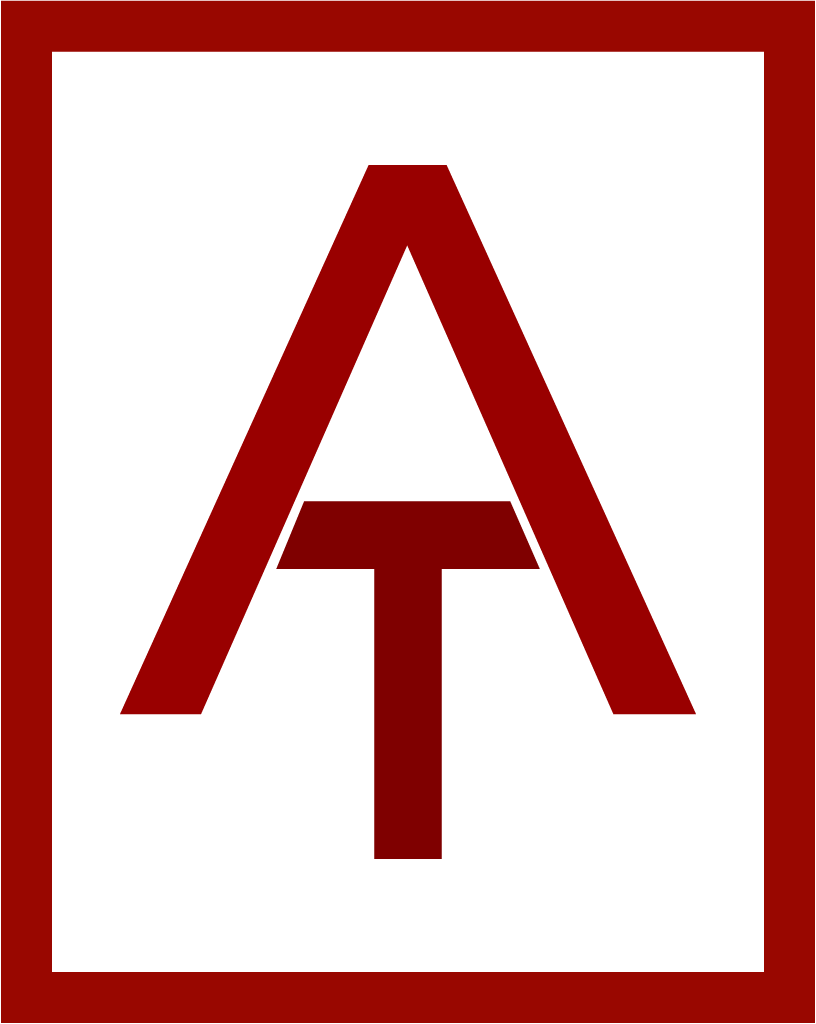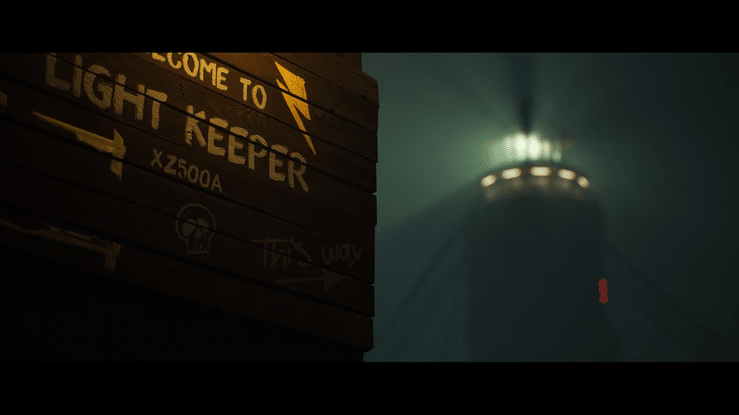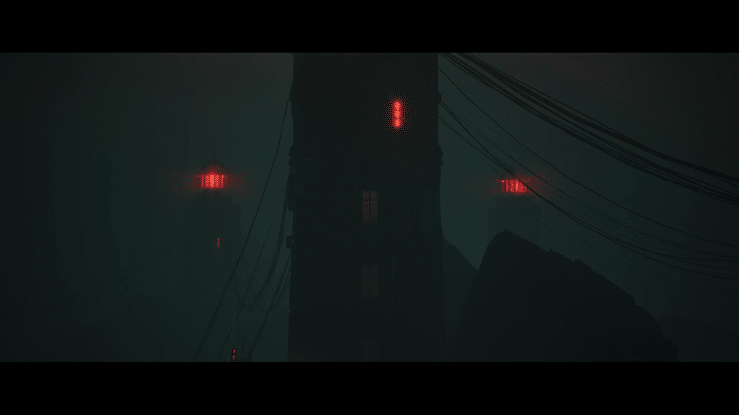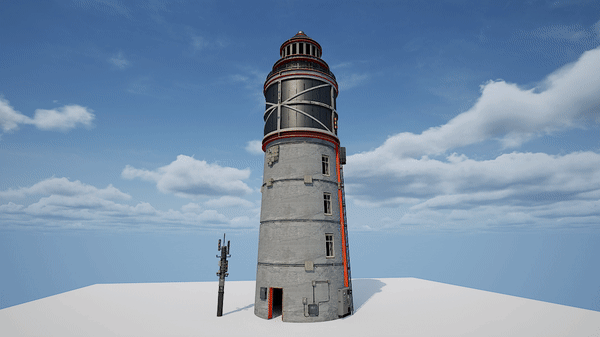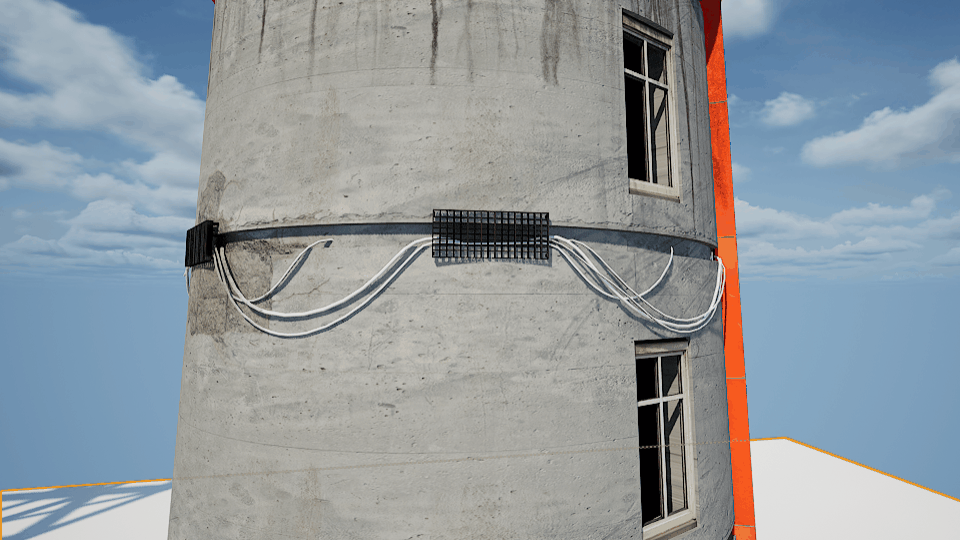BETTER LIGHT THAN NEVER
In May 2022, Unreal Engine launched the first of many Unreal Challenges to come. They encouraged the community to create a short 10-30 seconds video to showcase their lighting abilities. Everything had to be made in Unreal in only one month. As I always wanted to be a part of a creative community event, I decided to give it a try during the last weekend of May.
THE IDEA
Since as long as I can remember, I’ve always been fascinated by lighthouses. There’s something really meaningful to me about those places that makes them interesting. Their purpose is to guide lost ships in the sea to prevent them from crashing on the coast and find their way back. This is a beautiful metaphor that can be translated into countless number of scenarios.
I immediately knew by reading the challenge’s name that I wanted to play with lighthouses but not in a conventional way. I asked myself: “What could be the purpose of a lighthouse if there’s no sea ?“
This project takes place in a post-apocalyptic world where people are living in a constant heavy fog. Lighthouses are shelters, electrical relays and a way to navigate the fog for wanderers. They are light keepers: the only thing that’s left to keep humanity away from total darkness.
THE REVEAL
The first shot had two purposes:
Slowly reveal with a rack focus the main subject of the sequence.
Contextualize the project through environment storytelling.
THE CONFLICT
Telling a story in just 20 sec is quite a big challenge so I had to make sure something happens in this shot. As lighting was the subject of the project, I used it at my advantage. Going from white to red shows that there might be a problem with the lighthouse. To depict that in the cinematography, I tried to play with complementary colors and a slight dutch angle.
This is also the establishing shot of the sequence, making it clear for the viewer in what environment the story takes place.
THE ENDING
I revisited the ending multiple times, not knowing how to close the story. Having a cliffhanger made me solve that issue by letting the viewer know that there’s more about that place that I didn’t reveal.
The central lighthouse has been corrupted and since every installation is linked to the others, the entire network is affected.
In the very end of the story, we get to see the guardian of the Light Keeper XZ500A which may be our villain.
BEHIND THE SCENE
This project was achieved in 4 days. On top of being a really good exercise, it made me explore new workflows and techniques like the use of Houdini bridge for cables set dressing or the versatility of the new Modeling Tools inside Unreal. I got also the chance to find out weaknesses that I need to work on for the next project.
REFERENCES
The idea of a lighthouse in the fog began with an artwork of Duncan Halleck, I liked the colors and the threatening silhouette in the center of the composition. As I really wanted to depict lighthouses as technological relics from the past, I immediately got influenced by the marvelous work of Simon Stålenhag. For some of the props, I got inspiration from one of my favorite concept artist: Ismail Inceoglu.
Composition
-

THE REVEAL
In this shot, leading lines (boards & cables), rack focus, a slight cam movement and surface division are used to redirect the attention to the main subject of the frame.
-

THE CONFLICT
Most props of the scene are organized in a way that creates a path through the environment to the lighthouse.
-

THE ENDING
This is a frontal centered and almost perfect symmetric shot. Everything goes toward the dead center of the frame.
IN THE VIEWPORT
MODELING TOOLS
The new modeling tools available in Unreal Engine 5 were tremendously helpful on this project as I didn’t have time to create the assets from A to Z. By batching together lots of props and bending them on the base mesh I had made, I got a pretty good result for what I was aiming for.
HOUDINI
This project allowed me to try Houdini engine inside Unreal for the first time. I spent a lot of time playing with a cable tool from SideFX and I must say the ability to simulate gravity and collision directly in Unreal is quite impressive.
INFOS
CREDITS
DESIGN: Arthur Tasquin
MUSIC: Philippe Tasquin
YEAR
2022
